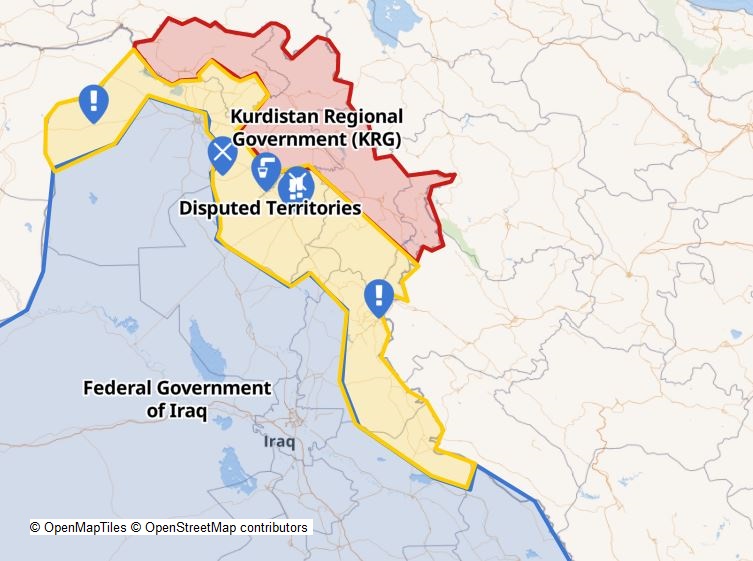1.5K
Kirkuk
- Kirkuk’s acting governor Rakan al Jabouri annulled the 2013 plan by former governor Najmaldin Karim to designate nearly thirteen acres of land for the Kurdistan Regional Government (KRG) to build homes for the families of Peshmerga that were martyred during the ISIS (Da’esh) war, and families of genocide victims. In a memo, al Jabouri advised the Kurdistan Martyrs and Anfal Affairs department in Kirkuk to apply for benefits from the federal Martyrs Foundation. However, the Iraqi Martyrs Foundation does not contribute benefits to those part of the KRG’s Martyrs and Anfal Affairs. Al Jabouri’s decision was undertaken on the anniversary of the Halabja Genocide, March 16th, rising anger among the Kurds.
- The Kirkuk court launched an investigation, demanding Kirkuk Provincial Council provide the names of council members that participated in the Kurdistan Independence Referendum in September of 2017. The court failed to recognize the fact that Provincial Councils across the country have been dissolved by its very own government, since 2019.
- Contracted teachers in Kirkuk held a protest in front of the education department, demanding three months of back pay. The late wages are related to Iraq’s repeated failure to form a new government, resulting in delays in contractors’ wages. Separately, Kirkuk’s criminal court sentenced the former head of the electricity department Yalcheen Mehdi Rashed and six other employees to six months in prison for “waste of public money.”.
- According to the latest export report by the State Organization for Marketing of Oil (SOMO), Kirkuk oil exports suffered a decline of more than a million barrels for the second month in a row. Kirkuk exported 1,448,935 oil barrels via the Cihan pipeline, grossing 168,337,268 USD in March. The decline in exports of Kirkuk oil was a result of a pause in exports to Jordan, which are set to resume this month. However, Iraq recorded the highest record for oil exports in March.
- Amid continuous division between the nationalist and Islamist wings, the Turkish-backed Turkmen Front disputes progressed to social media exchange between its leaders. On his social media accounts, the pro-Muslim Brotherhood, the current leader of the Turkmen Front, Hassan Turan, said, “Political work is talent, intelligence, understanding, and practice. Whoever lacks these qualities will not be an effective collegial politician–his achievements remain within the scope of hollow statements, tweets that do more harm than good” targeting Arshad Salihi, an ultra-nationalist member of Iraqi Parliament and former party leader. Previously, Salihi repeatedly said,” The Turkmen fate” is in the hands of “hollow men,” indirectly criticizing Turan’s leadership.
Khanaqin
- The head of the Department of Migration and Displaced Persons in Khanaqin, Ali Gazi Aga, said that 10,000 displaced families remain in the town. Fifteen percent are from al Anbar and Saladin province, while 85% are from Diyala’s Jalawla, Sadeia, and Meqdadia. Aga also added that many families had received benefits from the department to return but remained in the town. The lack of essential services and security issues by both Da’esh and Iranian-backed militias prevent families from returning.
Makhmour
- The commander of the Kurdish volunteer forces against Da’esh, Gazi Faisal, said the Kurdish population in the Qaraj subdistrict has vanished while it was nearly 70%. Faisal blamed drought and lack of support by Kurdish authorities, leading many Kurds to sell their homes and lands under market prices, bought by Arab settlers supported by the Iraqi security forces and the federal government.
Shingal (Sinjar)
- According to the Director of Duhok’s Migration and Displaced Person’s Department, 400 Yazidi families have requested to return to displaced camps from Shingal due to a lack of primary services and deteriorated security situation. The official said the families have again registered to be transferred to the camp, preferring it over living in their homes.

